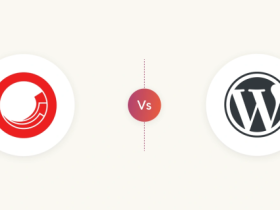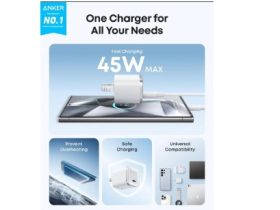Money decisions aren’t just about math. They’re about mindset, confidence, and the way you see yourself. That’s why self-esteem plays such a big role in how people manage their finances. If you believe in your ability to handle challenges and trust yourself to make smart choices, you’re more likely to save, invest, and avoid unnecessary debt. On the other hand, low self-esteem can lead to choices that feel good in the moment but cause problems later. For some, that even means needing help from programs like National Debt Relief when money troubles start piling up.
The Link Between Confidence and Control
When people feel good about themselves, they’re more likely to feel capable of handling their money. This sense of control leads to better planning, such as creating a budget, sticking to it, and making room for savings. High self-esteem doesn’t mean someone never makes a mistake, but it does mean they bounce back faster because they believe they can handle setbacks. In contrast, low self-esteem often makes people doubt their abilities. They might avoid checking their bank account or put off opening bills because they fear the worst. That avoidance can cause small issues to spiral into big ones.
Overspending as a Coping Mechanism
For many, spending becomes a way to temporarily boost how they feel about themselves. Buying new clothes, gadgets, or even expensive meals can give a quick hit of confidence or happiness. The problem is that this is short-lived, and once the excitement fades, guilt or regret often follows. Overspending to soothe low self-esteem is like trying to put out a fire with gasoline—it only makes the situation worse. People with stronger self-esteem are more likely to find healthier ways to feel good about themselves without needing to spend money they don’t have.
The Hidden Trap of Financial Avoidance
Low self-esteem can also cause people to avoid dealing with money altogether. Ignoring debt statements, not setting financial goals, or refusing to ask for help are all common signs of financial avoidance. This isn’t laziness—it’s fear of failure and a lack of belief in one’s ability to turn things around. Unfortunately, avoidance usually leads to more stress and greater financial trouble. On the other hand, people with higher self-esteem tend to face challenges head-on. Even if things look rough, they believe their actions can make a difference, so they take steps to improve their situation.
Debt and Self-Sabotage
Taking on harmful debt is another way low self-esteem shows up in financial behavior. Some may use credit cards or loans to fund lifestyles that make them feel accepted or valued by others, even if it’s beyond their means. Others may borrow impulsively because they don’t feel confident enough to delay gratification or trust themselves to save. Over time, this pattern of self-sabotage can create a heavy financial burden. Stronger self-esteem often acts as a shield here, helping people recognize that their worth isn’t tied to possessions or appearances.
The Ripple Effect of High Self-Esteem
When self-esteem is strong, it has a ripple effect across financial decisions. Someone who believes in their value is more likely to ask for a raise, negotiate better terms, or explore opportunities for growth. They’re also more inclined to take calculated risks, such as investing in education or starting a business, because they trust themselves to handle the outcome. These decisions compound over time, leading to greater financial stability and freedom.
Building Self-Esteem for Better Money Habits
The good news is that self-esteem isn’t fixed—it can be improved. Small wins create confidence, and those wins often start with simple actions. Setting a tiny savings goal and reaching it, paying off a small debt, or even keeping up with a monthly budget can boost self-esteem because they prove to yourself that you’re capable. Over time, these small victories build momentum, leading to bigger and smarter financial choices. Surrounding yourself with supportive people and seeking professional guidance when needed can also help strengthen both self-esteem and financial habits.
Practical Ways to Connect the Two
A few practical steps can connect self-esteem growth with financial improvement. Journaling about money decisions helps uncover emotional triggers. Practicing gratitude can shift focus from what’s lacking to what’s already going well. Celebrating progress, even small steps, builds confidence. And being kind to yourself when you slip up matters just as much as the success—because beating yourself up only reinforces low self-esteem and unhealthy financial habits.
Final Thoughts
Self-esteem may not seem like it has much to do with money at first glance, but it’s one of the most powerful factors influencing financial behavior. High self-esteem brings confidence, discipline, and resilience, while low self-esteem can lead to avoidance, overspending, and harmful debt. By building a stronger sense of self, you not only improve how you feel about yourself but also create a healthier, more stable financial future. At the end of the day, believing in yourself may be the most valuable asset you’ll ever own.










































Leave a Reply